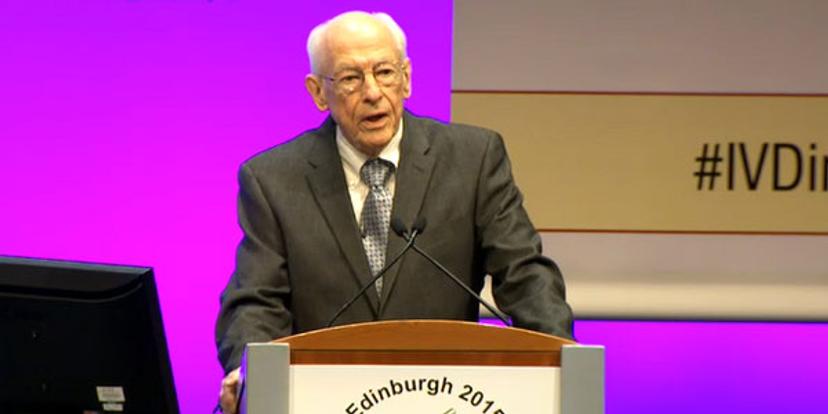The Binding Site's 7th International Symposium 2015
Clinical Applications of Free Light Chain and Heavy/Light Chain analysis
28 Apr 2015
The Binding Site's 7th International Symposium presented the latest advances in the clinical applications of free light chain (FLC) and heavy/light chain (HLC) analysis for the diagnosis and monitoring of Multiple Myeloma and other diseases. This exciting event was held on the 16th-17April, 2015 in Edinburgh, UK, and attracted eminent speakers from around the world.
Free Light and Heavy/Light Chain Analysis
With its expertise in antibody specificity technology, Binding Site gives clinicians and laboratory staff the tools to significantly improve diagnosis and management of patients with Multiple Myeloma and other immune disorders.
Immunoglobulin free light chains (FLC) are produced by plasma cells in the bone marrow and circulate in the blood. Detection of monoclonal FLC in serum is used as a tumor marker for the diagnosis of Multiple Myeloma, (a cancer of plasma cells), and similar disorders. As tumors produce an excess of one particular free light chain type (kappa (κ) or lambda (λ)), the measurement of the individual free light chains and the κ/λ ratios can be used to detect monoclonal disease.
Informative Presentations

Presentations were given by Clinicians and Laboratory Managers from around the world, including Robert Kyle, Professor of Medicine, Laboratory Medicine and Pathology at the Mayo Clinical College of Medicine, USA
About The Binding Site

The Binding Site, a world-leading specialist protein company, manufactures a wide range of innovative products, including the novel Freelite® Serum Free Light Chain Assays and Hevylite® Assays. These cutting edge products use antibody specificity technology for the diagnosis and monitoring of Multiple Myeloma and related disorders.
At the symposium, sessions covered the clinical application of FLC and HLC in Monoclonal Gammopathy of Undetermined Significance (MGUS), Smouldering Multiple Myeloma (SMM) and Multiple Myeloma (MM) as well as AL Amyloidosis and other monoclonal gammopathies. Their application in other diseases such as Multiple Sclerosis and Cardiovascular Disease were also presented.
Eminent speakers from around the world presented at the symposium, including:
- Dr Akira Matsumori, President of the Asian Pacific Society of Cardiology, Kyoto, Japan
- Angela Dispenzieri, Professor of Laboratory Medicine and Pathology, Mayo Clinic, Rochester, USA
- Dr Brian Durie, Chairman of the Board, International Myeloma Foundation, Cedars Sinai Medical Center, California, USA
- Professor Heinz Ludwig, President of the Wilhelm Cancer Research Institute, Vienna, Austria
- Hervé Avet-Loiseau, Head of Laboratory for Genomics in Myeloma, University Cancer Centre, Toulouse, France
- Ingemar Turesson, Assistant Professor/Senior Consultant, Skane University Hospital, Malmö, Sweden
- Dr Jerry Katzmann, Laboratory Director, Mayo Clinic, Rochester, USA
- Dr Ola Landgren, Chief of the Multiple Myeloma Service, Memorial Sloan-Kettering Cancer Center, New York, USA
- Robert Kyle, Professor of Medicine, Laboratory Medicine and Pathology, Mayo Clinic, Rochester, USA
- Sigurdur Kristinsson, Professor or Hematology, University of Iceland, Reykjavik, Iceland
More than 160 poster abstracts were submitted for the symposium, with 10 poster prize winners announced in the following categories:
- Monitoring Monoclonal Gammopathies
- Diagnostic Algorithms for Multiple Myeloma
- Risk Stratification of Monoclonal Gammopathies
- Case Reports
- Amyloidosis
- Method Evaluation and Comparison
- Monoclonal Free Light Chain and Renal Implications
- Other Uses of Free Light Chain and Heavy Light Chain
- Free Light Chains in Multiple Sclerosis
- Polyclonal Free Light Chains
The overall winning poster and recipient of the first ever Bradwell Award for Work in Free Light Chain and Heavy Light Chain Analysis was Dr Rinaldo Brivio, San Gerardo Hospital, Monza, Italy, for his poster ‘Free Light Chains Turbidimetric Measurement in Cerebrospinal Fluid: Role in Multiple Sclerosis’. Dr Brivio’s research investigated the use of κ and λ FLC turbidimetric measurement in cerebrospinal fluid and serum as a clinically useful marker in multiple sclerosis in comparison with the current analysis of oligoclonal bands. The award was presented by Dr Stephen Harding, Research and Development Director at The Binding Site and Scientific Director of the Symposium.
You can view the full list of winners here.
SelectScience will be publishing a series of articles based on the presentations given at the 7th International Symposium for the Clinical Applications for Free Light Chain and Heavy/Light Chain Analysis.
Become a member today to ensure that you receive notifications and updates on this important information.
